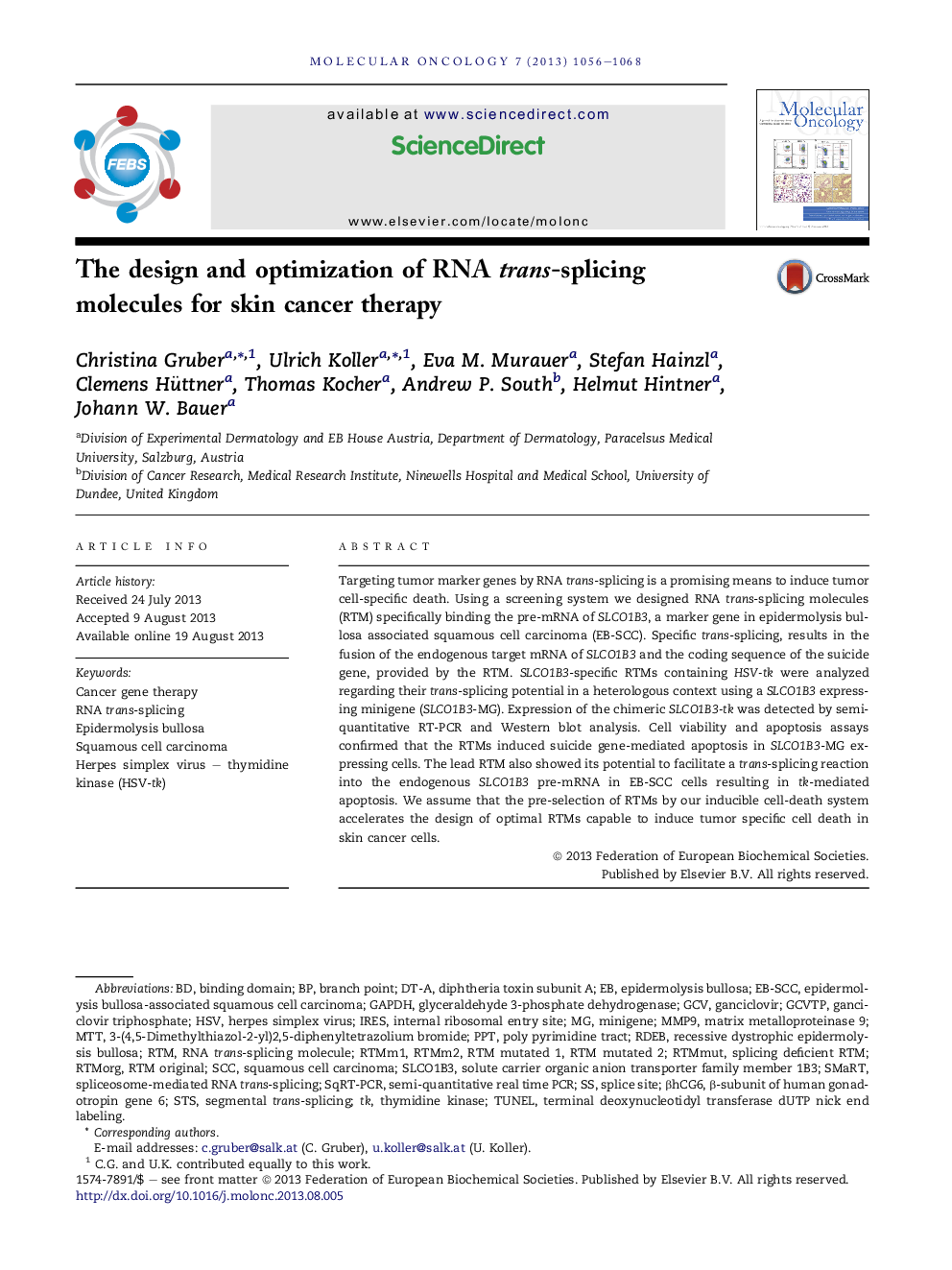| کد مقاله | کد نشریه | سال انتشار | مقاله انگلیسی | نسخه تمام متن |
|---|---|---|---|---|
| 2145617 | 1088806 | 2013 | 13 صفحه PDF | دانلود رایگان |

• The marker gene SLCO1B3 can be targeted by RNA trans-splicing molecules (RTMs).
• Accurate RNA trans-splicing leads to the fusion of SLCO1B3 and HSV-thymidine kinase.
• Screening system accelerates the construction of RTMs with improved functionality.
• The expression of the SLCO1B3-HSV-tk fusion protein induces apoptosis in target cells.
Targeting tumor marker genes by RNA trans-splicing is a promising means to induce tumor cell-specific death. Using a screening system we designed RNA trans-splicing molecules (RTM) specifically binding the pre-mRNA of SLCO1B3, a marker gene in epidermolysis bullosa associated squamous cell carcinoma (EB-SCC). Specific trans-splicing, results in the fusion of the endogenous target mRNA of SLCO1B3 and the coding sequence of the suicide gene, provided by the RTM. SLCO1B3-specific RTMs containing HSV-tk were analyzed regarding their trans-splicing potential in a heterologous context using a SLCO1B3 expressing minigene (SLCO1B3-MG). Expression of the chimeric SLCO1B3-tk was detected by semi-quantitative RT-PCR and Western blot analysis. Cell viability and apoptosis assays confirmed that the RTMs induced suicide gene-mediated apoptosis in SLCO1B3-MG expressing cells. The lead RTM also showed its potential to facilitate a trans-splicing reaction into the endogenous SLCO1B3 pre-mRNA in EB-SCC cells resulting in tk-mediated apoptosis. We assume that the pre-selection of RTMs by our inducible cell-death system accelerates the design of optimal RTMs capable to induce tumor specific cell death in skin cancer cells.
Journal: Molecular Oncology - Volume 7, Issue 6, December 2013, Pages 1056–1068